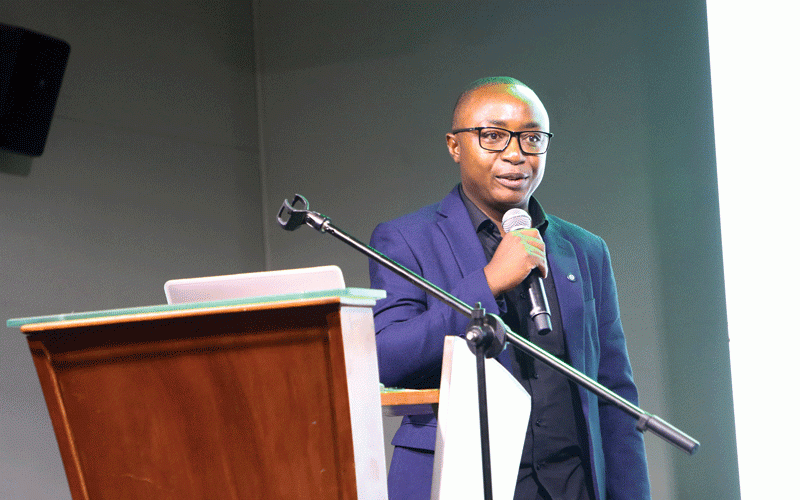
GREAT leaders always create ways to develop followers into leaders and leaders into agents of change. They bring education, expertise, experience, exposure and evaluation to the table. Today we talk about leadership development. I (JN) engaged Arthur Marara (AM) on this important subject. Marara is an attorney, author, human capital trainer, business speaker and thought leader.
JN: Why is leadership important?
AM: Everything rises and falls on leadership. This is John C Maxwell’s contribution to the leadership discourse.
Great organisations invest in continuous leadership development. Leadership development is not an event. It is a decision, and secondly, it is a process.
The focus should be on helping individuals develop the skills and knowledge needed to lead successful teams and organisations. Leadership development aims to help individuals grow and improve their skills to be more effective leaders in their respective fields.
JN: How important is leadership development in an organisation?
AM: This is a build-up pretty much on the first part of our engagement. If we want better organisations, we need to focus on developing better leaders. This is a universal principle. For any business organisation that is functioning, there is a relationship with leadership. We need to normalise conversations on leadership.
There are several reasons why we need to focus on leadership development; and I am going to share just a few.
- Australia floods worsen as thousands more flee Sydney homes
- Japan brings cheer to Gokwe
- Commodity price boom buoys GB
- 9 000 farmer field schools on cards
Keep Reading
Leadership development in organisations helps recruit and retain talent. The number one challenge for every leader is to attract the right human resource and capital.
Once you attract the right talent, you need to retain it.
Top talent is hard to find. In order to navigate this, organisations must continuously attract the best people by providing opportunities for professional growth and developing employees’ leadership skills.
Leading organisations today deliberately focus on employee engagement, which plays a significant role in shaping employee attitudes and behaviours that affect retention within an organisation irrespective of their job function or organisational level.
Leadership development opportunities in a team also build engagement among team members.
The number one role for a leader is to prepare their successor. Succession in Africa is taboo. We do not talk about it. In fact, we make people scared of the subject. Whether you like it or not, you will not always be there. Groom and prepare people for your absence.
Leaders will come and leave the organisation but at any given time the gap should not be felt if we prepare properly. Leadership development helps leaders prepare their teams for their voluntary or involuntary exit. Leaders need to provide clear guidance, direction, and skills training so that their teams can continue to function effectively even after they leave.
Leadership development helps create a line of succession if the manager leaves the team. It ensures that qualified people are ready to take over, should they leave the team.
Leadership development in organisations creates a competitive advantage. Leaders who undergo leadership development learn how to break through challenges and seize opportunities. They also develop interpersonal skills essential when interacting with others in an organisation.
The skills that leaders learn during leadership development help them create co-operative environments, overcome resistance and build strong relationships with their team members. It gives the team an edge over its competitors.
J.N: How do I attract, develop, and retain talent?
AM: Establish a strong company culture. Culture refers to how we do things as an organisation. It also encompasses shared values, ideologies, and practices — can make or break your hiring and retention initiatives.
With a positive workplace culture, team members are more likely to feel inspired and have a sense of purpose.
Conversely, when your culture isn’t defined or fails to resonate with employees, they may feel disconnected from your company, leading to poor performance and higher turnover.
Establishing a solid company culture is a must. The first step to doing that is to gain clarity into what your firm stands for. What is the purpose of your business? Who do you serve? What impact do you want to have in the world? People are attracted to the right culture.
Be intentional with your hiring process. Be careful about your hiring process. When you hire someone who doesn’t share your company values, the new person may not feel entirely at ease in the workplace and are thus more likely to leave.
Be very intentional with your hiring practices. Evaluate candidates based on their qualifications and cultural fit, so you can fully assess whether or not someone is suitable for the role at your company.
Be clear about the work environment you offer, your values, and what you're looking for in a candidate.
Reward talent: People do not eat compliments, pay them. You cannot retain talent that you are not prepared to reward.
Create room for growth: Send your talent for continuous learning programmes. You cannot afford to be stuck with talent that is not learning and growing. You need the right talent to grow and develop.
JN: Can I develop others and never feel threatened?
AM: Yes, you can. It only takes a secure leader to develop others. Let’s face it, you will not always be there, prepare others to take after you.
This is the failing of Africa; we have not normalised conversations around succession. It’s taboo. Make others successful and grow yourself in the process. The challenge is when you put a ceiling for yourself and somehow see everyone as a threat.
JN: At times we have to go beyond developing others, and develop ourselves first. Tell us your personal story, how do you develop yourself as a leader in your everyday life?
AM: This in an entire book I will just give some key highlights.
Intentionality is key — nothing just happens. Growth is intentional. We have to be intentional about growth. Self-discovery — who you are as a leader is equally important. You cannot lead from a point of ignorance but a point of knowledge. Discover yourself as a leader and develop yourself.
Envision your leadership — what is the future you want to see. Define possibilities from the perspective of leadership. People follow vision and then people. Vision attracts people to you as a leader. Invest in your vision. Grow the vision.
Commitment to learning — in a fast-changing world values should never change, we change the how part and never the why part.
Planning is key — Solomon says Good planning and hard work lead to prosperity but hasty shortcuts lead to poverty.
JN: How does a leader keep abreast in the fast-changing world of tech and AI? How do I increase success while navigating change?
AM: Change is the only constant in life. How you handle and manage change becomes important. This goes to change management.
AI is happening. The sooner we adopt it in our business the better. Africa has been lagging in implementing some of these technologies, but this is also the opportunity.
Let us be willing to have an open mind and to learn continuously. Be agile and flexible in this environment.
JN: How important is exposure for leadership effectiveness? And how do we expose ourselves and others?
AM: This is part of learning. I believe in having the right mentors in life. Learn from the right people. Identify effective leadership in your circle, study their models and learn.
The world is a global village where you can even learn and adopt certain lessons and practices from a distance.
JN: How do I evaluate myself as a leader and those I am developing into leadership?
AM: Feedback is important. You can chant praises to yourself but at the end of the day effectiveness of a leader is measured by impact. What change has your presence brought? How has the life of the people that you lead changed?
How different has life been since you became a leader? What does your team say about your leadership? Stop looking for praise, start looking for real honest feedback.
JN: A leader is expected to model, mentor, manage and motivate, doesn’t that make the leader to stay under constant pressure from the outside world?
AM: Leadership is a calling. If you answer the call you need to be willing to make sacrifices and live according to certain strict standards.
A leader has no right to privacy; everything you do should be up for scrutiny. You cannot lead people and then purport to hide your life from them.
Most importantly, I believe that a leader’s private life is their greatest asset or weakest liability. There is no pressure from the outside world; there is a legitimate expectation from the outside world that you are going to be what you promise them you are.
JN: What are the final words of wisdom to every leader that wants to stay on top of the game?
AM: Stay humble, stay curious. Leadership is for learners and not the learned.











